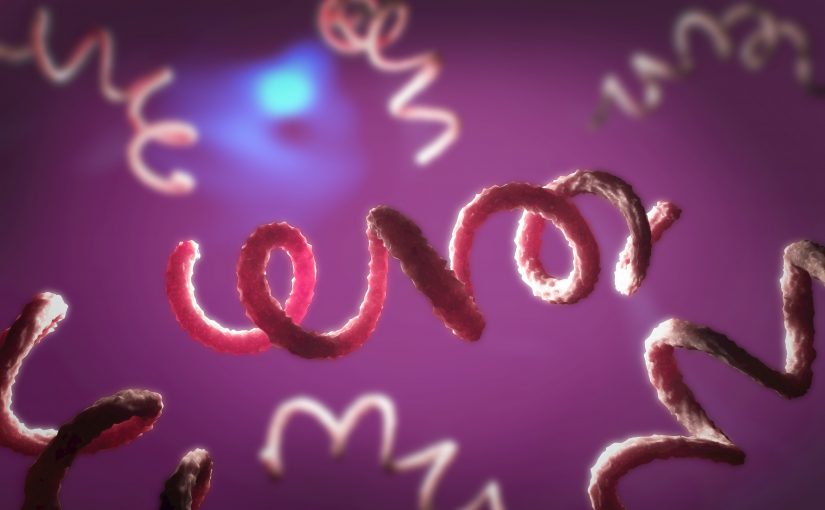Table of Content
Sexually Transmitted Infections (STIs) cover a range of medical conditions; including chlamydia trachomatis (there are non-STI species as well), syphilis, gonorrhoea, genital herpes, hepatitis, HIV infection/ AIDS.
The STIs being discussed in this article will be Chlamydia trachomatis, syphilis, and gonorrhoea. For information on HIV / AIDS and Hepatitis click on the supplied links.
Chlamydia trachomatis (commonly referred to as Chlamydia)
Symptoms
Amongst the most common STIs in Australia, sexually transmitted chlamydia is caused by the bacteria Chlamydia trachomatis and effects both sexes. One of the issues with chlamydia is that for 50% of men and 70-80% of women there aren’t always noticeable symptoms.
Symptoms may include pain during urination, and an unusual discharge from the penis, vagina or rectum. Women may experience bleeding between their periods or following intercourse. The only way to know for certain if you have chlamydia or another STI is to be tested specifically for it.
If left untreated, it can have serious effects, including pelvic inflammatory disease and sterility.
Testing
A simple urine test, and in some cases for women a swab test will determine if you have chlamydia. Samples are taken to a pathology lab where they are tested using Polymerase Chain Reactions (PCR) techniques. These molecular methods are extremely sensitive and highly specific and can be performed rapidly in a few hours. PCR testing looks at short sections of DNA and makes large numbers of them in a thermocycler to analyse. A billion copies of the DNA can be produced within a few hours.
If you have had unprotected sex or believe you may have contracted an STI you should visit your GP or medical clinic and discuss having a test.
Treatment
Chlamydia can be cured with a course of antibiotics, as recommended by a doctor.
Syphilis
Symptoms
Syphilis is caused by the bacteria Treponema pallidum and although traditionally somewhat rare in Australia, the numbers of cases, in both men and women, are dramatically increasing in recent years. If left untreated it can cause serious health problems. Syphilis overwhelmingly effects men – at seven times the rate of women – and is increasing in men who have sex with men and people with HIV/ AIDS. However, it can have devastating effects on unborn babies if acquired during pregnancy.
Initial symptoms include a painless sore on the genitals or around the rectum or mouth which disappears. Later symptoms can include a body rash, including on the hands or soles of the feet. If left untreated it can spread through the body and cause significant damage to organs, the cardiovascular system, the brain and the nervous system.
Testing
There are a number of tests, known collectively as Syphilis Detection Tests, that are used to detect syphilis. Most commonly, the test involves taking a blood sample, sometimes from a swab of the affected ulcer, and on rare occasions through a spinal tap. As with chlamydia samples are taken to a lab where they are searched for antibodies or by PCR to detect the bacterial DNA. The bacteria is not able to be cultured in a laboratory.
If you have engaged in high-risk activity or are pregnant you should consult your doctor about having a test.
Treatment
Like chlamydia, syphilis can be cured with a course of antibiotics.
Gonorrhoea
Symptoms
Colloquially known as ‘the clap’, gonorrhoea is caused by the bacteria Neisseria gonorrhoeae and can affect the urethra, cervix, anus, throat or eyes. It is spread by engaging in unprotected sex with someone infected with the condition.
Often asymptomatic, untreated gonorrhoea can lead to sterility in both sexes and other health complications. If symptoms occur they can include swollen testicles, vaginal discharge or bleeding between periods, or pain during urination. It can also be passed on from a pregnant mother to her baby during birth, potentially causing eye infection and blindness.
Testing
A gonorrhoea test involves taking a sample from a swab or brush of cells, vaginal or penile secretions, a urine sample, and sometimes a swab from a non-genital area. As per chlamydia and syphilis, the lab will test using PCR on the urine and grow bacteria in the laboratory. In recent years these bacteria have become increasingly resistant to the majority of antibiotics which were once effective in treating this infection, therefore it is very important to get samples where the bacteria can be cultured and then tested for sensitivity to antibiotics. The test is recommended for sexually active women 25 or older or who are pregnant, and yearly for men who have sex with men.
Treatment
Gonorrhoea can be treated with antibiotics.
If you believe you may have contracted any of the above, or any other STI, consult your doctor or medical clinic for advice on what to do.

